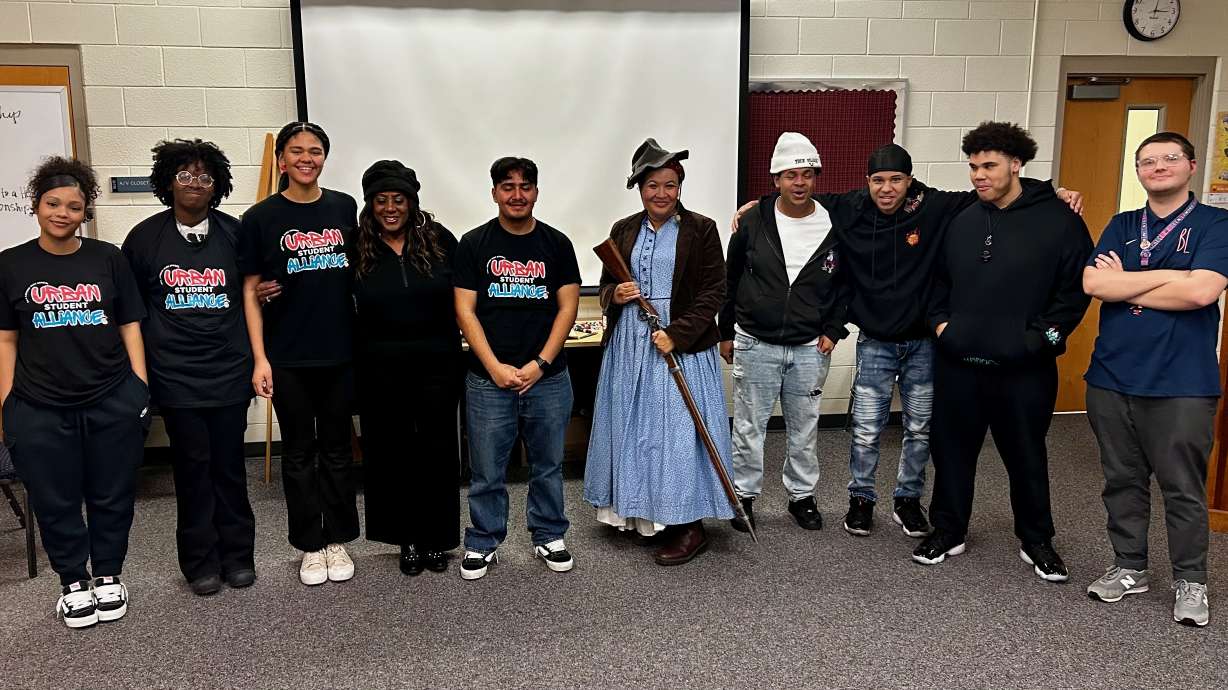Estimated read time: 4-5 minutes
This archived news story is available only for your personal, non-commercial use. Information in the story may be outdated or superseded by additional information. Reading or replaying the story in its archived form does not constitute a republication of the story.
- Path Forward Utah, which promotes conservative voices in minority communities, is hosting a Black History Month event.
- Organizer Jamie Renda touts it as a way of celebrating differences among Americans and the strides made in race matters.
- Several Republican Black Utahns will take part, including U.S. Rep. Burgess Owens and Yemi Arunsi, chairman of the Davis County Republican Party.
LAYTON — For Rod Hall, marking Black History Month isn't about focusing on the ills of the past, the wrongs Black people have historically faced.
That may be part of it, but he thinks the main thrust should be on the strides the population and the United States have made.
"I think it's super important to focus on how far we've come instead of what it was like or what it's been like. ... My whole goal is together forward," said Hall, a Republican and the first Black person ever elected to the Utah Board of Education.
Indeed, he's all for celebrating Black History Month — February — but also stresses the importance of "focusing on the beauty in one another" because of or in spite of any differences.
"We all have uniqueness to us, so I'm not saying be colorblind. You'll never be colorblind. That's the beauty of being a unique person," he said. "But let's focus on the beauty of that."
Friday, Feb. 28, is the last day of Black History Month, and Hall is one of several taking part in a Black History Month celebration in Layton organized by Path Forward Utah, an Ogden-based group that promotes conservative voices in Black and other minority communities. It starts at 6 p.m. and will be held at Faith Baptist Church, where Hall serves, at 2340 N. Fairfield Road in Layton. Among other participants will be U.S. Rep. Burgess Owens, R-Utah, and Yemi Arunsi, chairman of the Davis County Republican Party.
Focusing on race and racial differences is frowned upon among some conservatives, underscored, perhaps, by the push from the right against diversity, equity and inclusion initiatives aimed at assisting historically marginalized groups, including Black people. But Jamie Renda, the Path Forward Utah leader, thinks it's important to mark Black History Month as a way of recognizing and celebrating the differences among Americans and, as echoed by Hall, the strides made in the country in race matters.
"I don't think we see past race. I think we just don't focus only on race," said Renda, who is white.

Black history is part of the country's DNA, Renda said, and the improvements in Black civil rights through the U.S. Civil War and decades of struggle serve as a testament to the Black population and, more broadly, the United States. "America is about redemption, it's about resilience, and that's what Black Americans have gone through. They've gone through hard things. America has gone through hard things," she said.
Cari Bartholomew, of Payson, a Republican who unsuccessfully vied last year for a seat on the Utah Board of Education, expressed mixed sentiments about Black History Month. She's biracial, has been teaching a Black History Month program to students in a pair of homeschool cooperatives, and will also take part in the Path Forward Utah event.
She senses a focus in some Black History Month activities on "victimhood" and the oppression and wrongs Black people historically faced. In her curriculum, by contrast, she offers a broader perspective. She also tells stories about Black people who have achieved through perseverance and encourages her students, regardless of race, to think of obstacles they have overcome in their lives.
"Instead of having them go, 'Oh, Black people always suffer,' they learn from a story just like I would learn from 'Cinderella' or I would learn from 'The Secret Garden,'" she said, referencing the children's novel about an orphan girl by Frances Hodgson Burnett.
Read more:
She thinks Black History Month activities should serve as a unifying force and an indicator of human possibility, not as a means of instilling guilt for past wrongs.
"Isn't it amazing that today we can sit by people who are different than us? Isn't that wonderful? When are we going to start teaching gratitude rather than grievance? And when are we going to start teaching grit, real grit — not 'I've been oppressed and so blah, blah, blah,'" she said.
Renda sees Black History Month as a mechanism to overcome or edge past racial divides.
"We've got to find a way to move forward together and focus on more of the positive. Again, I think it's focusing on the things we have in common but appreciating the things we have different too," she said.











